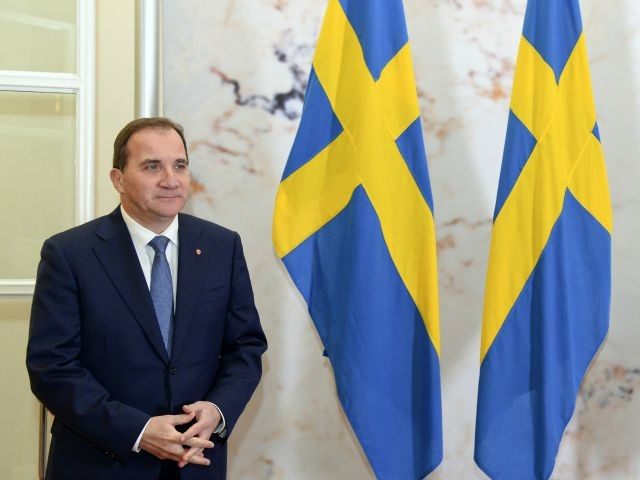A budget fight is edging Sweden closer to fresh national elections. This follows the breakdown of a deal with opposition parties that enabled the centre-left coalition led by Prime Minister Stefan Löfven (pictured) to rule as a minority government.
A grassroots rebellion at the right-wing Christian Democrats convention prompted the smallest opposition party to vote to pull out of the December Agreement with Mr Löfven and other centre-right parties quickly followed. Any new vote could open the way for the increasingly popular anti-immigration Christian Democrats to gain power.
Although the opposition would have to unite on a joint budget bill for the government to fall, that raises the chances Mr Löfven will call Sweden’s first snap election in more than half a century. This would come little more than a year after he won power.
A previous threat to do so had prompted the deal in December under which four centre-right parties agreed to approve Löfven’s budgets until 2022 in order to sideline the Sweden Democrats, which hold the balance of power in parliament.
With Sweden expecting a record number of asylum seekers this year as Europe deals with its biggest migration crisis since World War Two, the Sweden Democrats have been the only party to make substantial poll gains since last year’s election.
One opinion poll in August had them as the largest party, with a quarter of respondents favouring them, although another poll on Friday pushed them back down to 19.5 per cent.
Mainstream parties struck the original agreement to avoid unexpected opposition to future government financial plans, following a political crisis sparked by the Sweden Democrats last autumn, when they sought to prevent the coalition’s budget getting through parliament.
Christian Democrat bosses, including leader Ebba Busch Thor, had wanted to keep the hotly debated deal, but were voted down by party members in a move that immediately sparked the possibility of a snap poll.
“The December Agreement is a parenthesis in Swedish politics,” said a triumphant Sara Skyttedal after the vote, head of the party’s youth wing and who had campaigned for the deal to be scrapped.
“We are not prepared, during this and the next term of office, to be some supporting troops to Stefan Löfven,” said Christian Democrat Anders Andersson, who championed ending the accord at the party’s annual convention.
“We don’t accept that a left-wing, socialist policy is pushed through the Swedish parliament even though it lacks support.”
As a result, the Moderates and the Liberal People’s Party also immediately announced that they were abandoning the accord.
“The Liberal party wants to avoid Sweden being thrown into political chaos, but unfortunately that cannot be excluded,” party leader Jan Bjorklund told Swedish news agency TT, while Anna Kinberg Batra, leader of the Moderates, simply said that if one party pulled out of the deal, all parties would have to.
In a written statement late on Friday night, Mr Löfven, expressed his anger that the country was being thrown into political chaos.
“Sweden is facing some of the toughest challenges in modern times. The crisis in schools, high unemployment and the refugee crisis must be addressed forcefully. There are now demanding that these parties account for their new promises and not to create another parliamentary deadlock.”

COMMENTS
Please let us know if you're having issues with commenting.